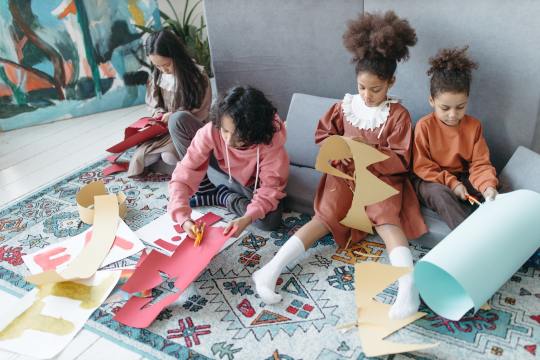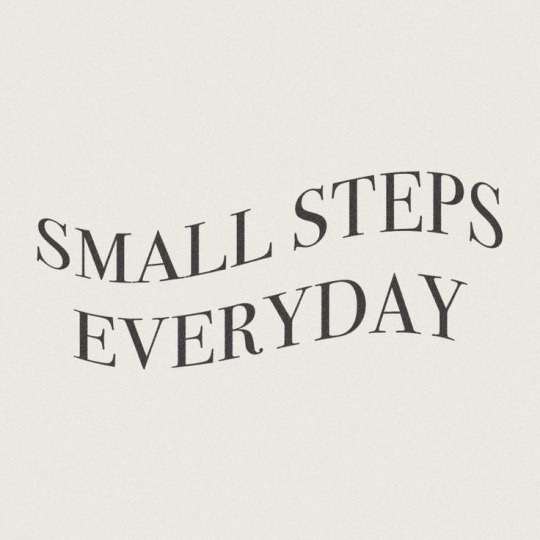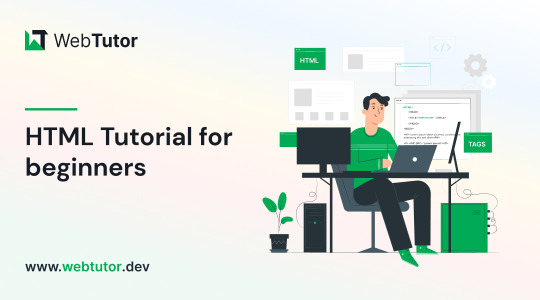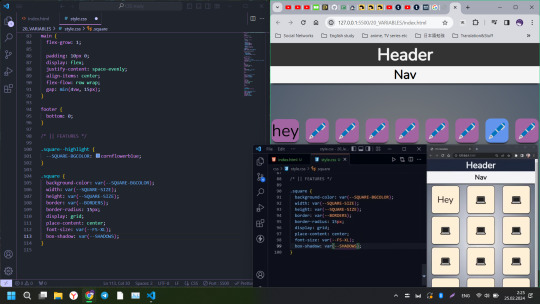#Learn Online HTML language
Text
HTML is an abbreviation for HyperText Markup Language. It is used to create web pages with the help of a markup language. Are you looking to learn HTML? Look no further! At WebTutor.dev, we offer comprehensive HTML tutorials and resources to help you become proficient in HTML, whether you're a beginner or an experienced developer. Our website is designed to provide you with an immersive and engaging learning experience, covering all aspects of HTML, from the basics to advanced concepts.
#Learn Online HTML language#HTML introduction#Learn HTML#Free HTML Tutorial#html tutorial#free online HTML editor#best HTML editor#how to learn html#learn to code html#is html hard to learn#is html easy to learn#best html learning sites#best place to learn html and css for free#best place to learn html for free#best site to learn html free#html tutorial for beginners#html developer#is html a programming language#html basic structure#html is a programming language#history of html#html coding structure
1 note
·
View note
Text
Exploring the Basics of HTML: A Journey into Web Development with an Online Compiler for HTML
In the vast universe of web development, HTML (Hypertext Markup Language) is the essential building block that transforms creative ideas into interactive web experiences. HTML provides the structural foundation for web content, allowing web developers to create well-organized and readable web pages. In this article, we will embark on a journey into the basics of HTML, exploring its core elements and their functions. Additionally, we will introduce you to a valuable resource: the Online Compiler for HTML, a tool that empowers aspiring web developers to experiment, test, and refine their HTML skills in a practical and user-friendly online environment.

HTML: The Language of the Web
HTML is the language of the web, serving as a markup language that defines the structure of web content. Its fundamental elements, or tags, are used to identify and format various aspects of a web page. Let's dive into some of the basic elements that form the foundation of HTML:
1. HTML Document Structure: An HTML document starts with the <!DOCTYPE html> declaration, which defines the document type. It is followed by the <html> element, which encapsulates the entire document. The document is divided into two main sections: the <head> and the <body>. The <head> contains metadata and information about the document, such as the page title, while the <body> contains the visible content.
2. Headings: Headings are essential for structuring content and providing hierarchy to text. HTML offers six levels of headings, from <h1> (the highest level) to <h6> (the lowest level). Headings help create a clear and organized content structure.
3. Paragraphs: To create paragraphs of text, the <p> element is used. This element defines blocks of text separated by blank lines and is a fundamental tool for organizing and formatting content.
4. Lists: HTML allows for the creation of both ordered (numbered) and unordered (bulleted) lists. Ordered lists are created with the <ol> element and list items with <li>. Unordered lists are created with the <ul> element, also with list items using `<li>.
5. Links: Hyperlinks are a crucial feature of the web. HTML provides the <a> (anchor) element for creating links. The href attribute within the <a> element specifies the URL of the page or resource to which the link should navigate.
6. Images: To embed images in a web page, HTML employs the <img> element. The src attribute within the <img> element points to the image file's location.
Introducing the Online Compiler for HTML
To practice and experiment with these basic HTML elements, there's a valuable resource at your disposal: the Online Compiler for HTML. This user-friendly online tool allows aspiring web developers to write, modify, and test HTML code in a practical environment. What sets it apart is its real-time rendering feature, enabling users to see immediate results as they make changes to their HTML code. It's an ideal platform for beginners and experienced developers alike to fine-tune their HTML skills and explore the language's capabilities.
Conclusion: The Journey Begins
Understanding the basics of HTML is the first step in your journey into the world of web development. HTML's fundamental elements serve as the building blocks upon which you'll construct your web pages. With the assistance of the Online Compiler for HTML, you have a practical and interactive resource to help you explore and master the language. As you become more proficient in HTML, you'll gain the ability to structure content, create links, and embed images, laying the foundation for the websites and web applications of the future. The journey into web development has just begun, and HTML is your trusty guide.
#coding#programming#webdevelopment#online learning#programming languages#html5#html#html website#webdev
5 notes
·
View notes
Text
#CSS#phyton#C Language#HTML#C++ Language#Learn CSS#Coding Classes#Java Script#Learn HTML#java language#Programming Language#HTML Language#CSS Language#coding for beginners#online coding courses
0 notes
Text
beginner’s guide to the indie web
“i miss the old internet” “we’ll never have websites like the ones from the 90s and early 2000s ever again” “i’m tired of social media but there’s nowhere to go”
HOLD ON!
personal websites and indie web development still very much exist! it may be out of the way to access and may not be the default internet experience anymore, but if you want to look and read through someone’s personally crafted site, or even make your own, you can still do it! here’s how:
use NEOCITIES! neocities has a built in search and browse tools to let you discover websites, and most importantly, lets you build your own website from scratch for free! (there are other ways to host websites for free, but neocities is a really good hub for beginners!)
need help getting started with coding your website? sadgrl online has a section on her website dedicated to providing resources for newbie webmasters!
HTML (HyperText Markup Language) and CSS (Cascading Style Sheets) are the core of what all websites are built on. many websites also use JS (JavaScript) to add interactive elements to their pages. w3schools is a useful directory of quick reference for pretty much every HTML/CSS/JS topic you can think of.
there is also this well written and lengthy guide on dragonfly cave that will put you step by step through the basics of HTML/CSS (what webpages are made from), if that’s your sort of thing!
stack overflow is every programmer’s hub for asking questions and getting help, so if you’re struggling with getting something to look how you want or can’t fix a bug, you may be able to get your answer here! you can even ask if no one’s asked the same question before.
websites like codepen and jsfiddle let you test HTML/CSS/JS in your browser as you tinker with small edits and bugfixing.
want to find indie websites outside the scope of neocities? use the search engine marginalia to find results you actually want that google won’t show you!
you can also use directory sites like yesterweb’s link section to find websites in all sorts of places.
if you are going to browse the indie web or make your own website, i also have some more personal tips as a webmaster myself (i am not an expert and i am just a small hobbyist, so take me with a grain of salt!)
if you are making your own site:
get expressive! truly make whatever you want! customize your corner of the internet to your heart’s content! you have left the constrains of social media where every page looks the same. you have no character limit, image limit, or design limit. want to make an entire page or even a whole website dedicated to your one niche interest that no one seems to be into but you? go for it! want to keep a public journal where you can express your thoughts without worry? do it! want to keep an art gallery that looks exactly how you want? heck yeah! you are free now! you will enjoy the indie web so much more if you actually use it for the things you can’t do on websites like twitter, instead of just using it as a carrd bio alternative or a place to dump nostalgic geocities gifs.
don’t overwhelm yourself! if you’ve never worked with HTML/CSS or JS before, it may look really intimidating. start slow, use some guides, and don’t bite off more than you can chew. even if your site doesn’t look how you want quite yet, be proud of your work! you’re learning a skill that most people don’t have or care to have, and that’s pretty cool.
keep a personal copy of your website downloaded to your computer and don’t just edit it on neocities (or your host of choice) and call it a day. if for some reason your host were to ever go down, you would lose all your hard work! and besides, by editing locally and offline, you can use editors like vscode (very robust) or notepad++ (on the simpler side), which have more features and is more intuitive than editing a site in-browser.
you can use ctrl+shift+i on most browsers to inspect the HTML/CSS and other components of the website you’re currently viewing. it’ll even notify you of errors! this is useful for bugfixing your own site if you have a problem, as well as looking at the code of sites you like and learning from it. don’t use this to steal other people’s code! it would be like art theft to just copy/paste an entire website layout. learn, don’t steal.
don’t hotlink images from other sites, unless the resource you’re taking from says it’s okay! it’s common courtesy to download images and host them on your own site instead of linking to someone else’s site to display them. by hotlinking, every time someone views your site, you’re taking up someone else’s bandwidth.
if you want to make your website easily editable in the future (or even for it to have multiple themes), you will find it useful to not use inline CSS (putting CSS in your HTML document, which holds your website’s content) and instead put it in a separate CSS file. this way, you can also use the same theme for multiple pages on your site by simply linking the CSS file to it. if this sounds overwhelming or foreign to you, don’t sweat it, but if you are interested in the difference between inline CSS and using separate stylesheets, w3schools has a useful, quick guide on the subject.
visit other people’s sites sometimes! you may gain new ideas or find links to more cool websites or resources just by browsing.
if you are browsing sites:
if the page you’re viewing has a guestbook or cbox and you enjoyed looking at the site, leave a comment! there is nothing better as a webmaster than for someone to take the time to even just say “love your site” in their guestbook.
that being said, if there’s something on a website you don’t like, simply move on to something else and don’t leave hate comments. this should be self explanatory, but it is really not the norm to start discourse in indie web spaces, and you will likely not even be responded to. it’s not worth it when you could be spending your time on stuff you love somewhere else.
take your time! indie web doesn’t prioritize fast content consumption the way social media does. you’ll get a lot more out of indie websites if you really read what’s in front of you, or take a little while to notice the details in someone’s art gallery instead of just moving on to the next thing. the person who put labor into presenting this information to you would also love to know that someone is truly looking and listening.
explore! by clicking links on a website, it’s easy to go down rabbitholes of more and more websites that you can get lost in for hours.
seeking out fansites or pages for the stuff you love is great and fulfilling, but reading someone’s site about a topic you’ve never even heard of before can be fun, too. i encourage you to branch out and really look for all the indie web has to offer.
i hope this post helps you get started with using and browsing the indie web! feel free to shoot me an ask if you have any questions or want any advice. <3
#webcore#old web#nostalgia#geocities#neocities#internet nostalgia#indie web#90s#early 2000s#y2k#guide#masterpost#html#css#javascript#internetcore#hope all these tags are appropriate for outreach!#wasn't quite sure#ayano was here#long post#i didn't want to advertise in this guide but if you're reading this my website is classicpokemonguide by the way!
24K notes
·
View notes
Text
Web Development with Dropout Developer's Unique Free Project-Based Learning Approach 2023
Are you looking for a new career in web development, but struggling to find the best way to learn? Are you tired of traditional learning methods that leave you feeling uninspired and unmotivated? Look no further than Dropout Developer, the go-to platform for mastering web development through project-based learning.
At Dropout Developer, we believe that project-based learning (PBL) is the key to…

View On WordPress
#back-end development#Career Roadmaps#Code Challenges.#Coding Bootcamp#Coding Education#Coding Resources#CSS#Expert Guidance#Free Tutorials#front-end development#Full-stack development#HTML#JavaScript#Job-Ready Developers#Learning Paths#Node.js#online learning#programming languages#Project-Based Learning#React#Responsive Web Design#Technology Education#User Experience Design#web development#web development career#Web Development Community#Web development frameworks#Web Development Jobs#Web Development Portfolio#Web development skills
0 notes
Text
back to basics


mostly free resources to help you learn the basics that i've gathered for myself so far that i think are cool
everyday
gcfglobal - about the internet, online safety and for kids, life skills like applying for jobs, career planning, resume writing, online learning, today's skills like 3d printing, photoshop, smartphone basics, microsoft office apps, and mac friendly. they have core skills like reading, math, science, language learning - some topics are sparse so hopefully they keep adding things on. great site to start off on learning.
handsonbanking - learn about finances. after highschool, credit, banking, investing, money management, debt, goal setting, loans, cars, small businesses, military, insurance, retirement, etc.
bbc - learning for all ages. primary to adult. arts, history, science, math, reading, english, french, all the way to functional and vocational skills for adults as well, great site!
education.ket - workplace essential skills
general education
mathsgenie - GCSE revision, grade 1-9, math stages 1-14, provides more resources! completely free.
khan academy - pre-k to college, life skills, test prep (sats, mcat, etc), get ready courses, AP, partner courses like NASA, etc. so much more!
aleks - k-12 + higher ed learning program. adapts to each student.
biology4kids - learn biology
cosmos4kids - learn astronomy basics
chem4kids - learn chemistry
physics4kids - learn physics
numbernut - math basics (arithmetic, fractions and decimals, roots and exponents, prealgebra)
education.ket - primary to adult. includes highschool equivalent test prep, the core skills. they have a free resource library and they sell workbooks. they have one on work-life essentials (high demand career sectors + soft skills)
youtube channels
the organic chemistry tutor
khanacademy
crashcourse
tabletclassmath
2minmaths
kevinmathscience
professor leonard
greenemath
mathantics
3blue1brown
literacy
readworks - reading comprehension, build background knowledge, grow your vocabulary, strengthen strategic reading
chompchomp - grammar knowledge
tutors
not the "free resource" part of this post but sometimes we forget we can be tutored especially as an adult. just because we don't have formal education does not mean we can't get 1:1 teaching! please do you research and don't be afraid to try out different tutors. and remember you're not dumb just because someone's teaching style doesn't match up with your learning style.
cambridge coaching - medical school, mba and business, law school, graduate, college academics, high school and college process, middle school and high school admissions
preply - language tutoring. affordable!
revolutionprep - math, science, english, history, computer science (ap, html/css, java, python c++), foreign languages (german, korean, french, italian, spanish, japanese, chinese, esl)
varsity tutors - k-5 subjects, ap, test prep, languages, math, science & engineering, coding, homeschool, college essays, essay editing, etc
chegg - biology, business, engineering/computer science, math, homework help, textbook support, rent and buying books
learn to be - k-12 subjects
for languages
lingq - app. created by steve kaufmann, a polygot (fluent in 20+ languages) an amazing language learning platform that compiles content in 20+ languages like podcasts, graded readers, story times, vlogs, radio, books, the feature to put in your own books! immersion, comprehensible input.
flexiclasses - option to study abroad, resources to learn, mandarin, cantonese, japanese, vietnamese, korean, italian, russian, taiwanese hokkien, shanghainese.
fluentin3months - bootcamp, consultation available, languages: spanish, french, korean, german, chinese, japanese, russian, italian.
fluenz - spanish immersion both online and in person - intensive.
pimsleur - not tutoring** online learning using apps and their method. up to 50 languages, free trial available.
incase time has passed since i last posted this, check on the original post (not the reblogs) to see if i updated link or added new resources. i think i want to add laguage resources at some point too but until then, happy learning!!
#study#education resources#resources#learning#language learning#math#english languages#languages#japanese#mandarin#arabic#italian#computer science#wed design#coding#codeblr#fluency#online learning#learn#digital learning#education#studyinspo#study resources#educate yourselves#self improvement#mathematics#mathblr#resource
528 notes
·
View notes
Text
H𝗘𝗘S𝗘𝗨NG 𝗔S Y𝗢𝗨R PR𝗢GR𝗔MM𝗘R BF!
✶ : 0.7k, hcs, programmer!heeseung & gn!reader, fluff, established relationship. ⚠ : kissing, pet names (babe), cuddling, mentions of food, ‘calling’ someone poopy pants (??). ੭ : i needed a break from programming for three hours straight <'3





heeseung lets you sit on his lap while he reads and writes codes. he caresses your head softly with a hand, the other skillfully editing the symbols and functions. occasionally, he spins his chair to take a break, looping his arms around your waist. his lips travel from your shoulder to your neck, jaw, cheeks, and then lips, humming tiredly in satisfaction against them.
because he spends a lot of time in front of his bright computer screen, his eyesight eventually got bad. after visiting the eye doctor, he listened to your suggestions and got a new pair of round glasses. now, whenever you push up the frame that falls to the tip of his nose he smiles shyly, a crimson tint coating his ears. his doe eyes avert from yours and his fingers press the right button of his mouse repeatedly. heeseung also knows that he should call it a day when you carefully take them off his face.
hee only knows bits of html and css, but if you're watching a boring online class he will appear by your side and snatch your laptop from your hands, laughing maniacally. despite your protests, he's already opening the inspect window to change your teacher's name to something dumb like “poopy pants”. he modifies the whole call — from your classmates’ questions in the chat (that now are quoting a random meme) to the class name (which, at the moment, is named “heestory”).
he does the most stupidly cheesy things for you and he's not ashamed at all.
heeseung once created a python program in five minutes and yelled “babe, come see what i did!” from his room. you thought he'd show you a complex project, but it was just a white page with “how much % of the day do you think about lee heeseung?” written in the middle.
you tried typing out numbers smaller than 10 to joke around with him, only for a message to pop up:
really? :( he thinks about you every moment of his day!
heeseung gazed up at you sadly from his chair as you tried writing bigger numbers — but none of them made the warning disappear. only when you wrote an obnoxiously big number that a new message came on
:D he thinks about you this much, too! congrats, you got an unlimited free pass to get as many kisses and cuddles as you want!
unfortunately, you didn't get to even read it when your boyfriend tackled you in the bed, tickling your sides and murmuring in faux anger that you were an annoying little brat for teasing him.
if you didn't know, you don't need a powerful computer or laptop to start programming. however, heeseung has a HUGE, modern setup, and being his partner means that you'll get one too. no matter if you use it every day or once in a blue moon, he's ready to spend all his money on a setup as big as his. do you want led lights? you got it. a new cooler? consider it done. a new computer monitor as long as your wall was released? it'll be by your doorstep tomorrow morning.
being his partner also means having to listen to his late-night complaints when a project of his doesn't go as planned. ask him how was his day and you'll get a sulky heeseung holding you close to his chest, ranting your ear off about how the program didn't execute half the commands. he'll pinch you or flick your forehead playfully if you laugh at him, not understanding a thing of what he's saying.
heeseung also uses the lamest technology pick-up lines with you. he prefers using ones that he knows you'll understand instead of choosing ones about the programming languages he uses. expect him to randomly ask you things like “are you wi-fi? ‘cause i'm feeling a connection between us!”, and push a side of his glasses down, winking at you.
last but not least, if you want to learn how to program, he'll immediately clean up his schedule a certain day of the week and teach you himself. heeseung will buy snacks, get fresh bottles of water, and put your chair as closer to his as possible, explaining every function and command with the uttermost love and patience in the world.

⠀ ⠀ © soov, 2O22.
#𔒌 ─ cupid’s arrow.#k-labels#enhypen headcanons#enhypen imagines#enhypen fluff#enhypen x reader#enhypen scenarios#enhypen soft hours#enha fluff#enha imagines#heeseung x reader#heeseung fluff#heeseung headcanons#heeseung drabbles#heeseung soft hours#lee heeseung x reader#lee heeseung fluff#lee heeseung#heeseung#enha heeseung#enha headcanons
2K notes
·
View notes
Note
I also want to start and IF, im already a writer on wattpad and I want to expand my horizons but I have absolutely no clue about coding and stuff
Is it difficult to code?
That is awesome and wonderful! I highly encourage you to take the plunge and try it out. I would not say coding is difficult, but it's not exactly easy either. You're literally learning a new language depending on how deep into it you go. For me, the way I did it was to learn, say, basic phrases ("Where is your bathroom," or "I'd like a glass of water") and grammar for this language. I'm not fluent, but I'm getting by. You don't have to have it mastered before you start.
For a long-winded breakdown, see below!
I knew absolutely zero code when I started this out. I just knew I wanted to do it so badly. There are good resources online to help you as well, especially questions on forums because we are not the only newbies in this with questions. I find the Twine cookbook thing to be a bit of a nightmare to understand, lol. I am more a type of person that needs to see something in action or do something to truly get it. I cannot just read something and understand it at all.
Two things I did that helped me a lot was to start a Twine project and enter all the code I learned into it and I also started a story to test it all out. I made notes to myself in these to remind me of what they do and how they work as well. I still have those and use them when I learn new things or if I find a new macro that I want to use.
If the Twine documents don't work for you, do a simple internet search for what you need. I started to learn the Harlowe code first, and I honestly found that more difficult than Sugarcube. As a side note, when I started this, I didn't even know that there were multiple languages that Twine could use! When you find a guide or a forum post that is useful, save it! Copy/Paste it or bookmark it. Put the code in Twine and test it right away. You'll find that it all starts making more sense to see it in action.
I can't tell you how many times I've Googled "Twine Sugarcube *insert code issue or desired outcome.*"
I also recommend finding a free coding class just to familiarize yourself with the basic function of html. I did one on codeacademy.com. There's also youtube videos out there from people who really know what they're doing.
It's not all sunshine and rainbows, so go into it knowing you are going to have really aggravating moments. I had times where I was trying so hard to understand this stuff that ended in a few tears of frustration. I'm a person who believes they can learn to do anything, but it takes pushing through those frustrating moments to get there. Our brains sometimes literally try to get us to quit stuff when it gets hard - we are wired to take the easy way out and when it's not easy, the brain is like - THIS IS PAIN. But I feel that if you push against that anyway, you'll get over that wall and things will start falling into place.
Sorry for rambling and I hope this helps you in some way, Anon! ^_^
I could go on, but for your sake, I'll stop there lol. If you have any other questions, please feel free to drop them in!
26 notes
·
View notes
Note
Hellu))
I looked at your neocities thingy, and I just wondered how you did that with the text boxes and the background and stuff. If you are willing to share, if you aren't, then sorry for wasting ur time)
I'm very new to coding (I suck) and "Penelope the cat" doesn't really help much T-T
Hi! Don't worry about asking, I'm always happy to help and give info on anything I know to the best I can! (Though to be completely honest, I too don't know much of HTML so... lol)
I used a <table> tag and the other tags that come with it. I also used boarder, boarder style, and background color, which would be in the CSS part of the code. Makes the boarder that's around it, The style that boarder will be in, and the background color of that table.Here's a website that explains it better then I can and also helps me out A LOT.
I heavily recommend this site, it's a life saver and will explain everything.
Also here is some CSS to help with the boarder and background!
Some other extra tips I'll throw in here:
I recommend using "Visual Studios". It's a free program and you can get a plug-in that allows you to see how your website looks without having to edit, go to the website, refresh, over and over. It also helps with coding as well, overall I'm loving it!
Now, by no means am I saying you should copy somebody else code and steal it. That's wrong. However, if you see something you like and want to know how it works, inspect the page and look at the code! I've learned a lot from doing this and it's help me figure out how things work too. Once again, do not straight up steal lines of somebody else's code. By that point you're not coding, you're copying, pasting, and stealing.
I also think you should learn the basics of HTML, and if you really want to make things then I say take the time to learn HTML. Personally for me, I love the look of broken ugly websites. Just some basic CSS will do for me! But if you're not like me, then yes, I think you should learn more then just the basics.
I'm sure there's some HTML nerds that can explain this way better then what I can so like I always say when it comes to learning stuff, look it up! The internet has unlimited free information, somebody 12 years ago on reddit probably asked the same question you did and the answer will be in the comments of that post. Always search for things!
8 notes
·
View notes
Note
Hiya!! I am taking a coding course at a University. While it's excellent for learning how to use a lot of complicated concepts in programming, we don't really get to do any projects or create anything yet. I was wondering how to get into that. Are there any resources you might recommend?
Hiya!! 💞
Goodie, you want to build your own projects! That's so good, I love project building! Now, it depends what you're coding (the languages + specific area) e.g. are you learning HTML/CSS/JavaScript (Website building) or is it like Python/Java/C# idk but you get what I'm asking for here, the projects you want to learn and build depends on what you're learning in the first place! But I will give some general advice!

🎥 YouTube
I love YouTube so much, there are thousands of videos on that site for any programming language to building pretty much anything! What I did when I started off was the simple search of "[The coding language] beginner project" and then I get to see what I can build. Now if you get stuck on a snippet of code, Google it and there are sites that will explain it for you. Now, don't fall for tutorial hell where you're watching tutorial after tutorial videos but watching them will give you a good foundation!
🔍 Google
Similar to what I said for the YouTube way, you can Google the same question and it will give you a bunch of project ideas, how to even do them and all you can do also is add more on top, what I mean is don't just watch or read about a project idea, see how you can twist it your own style e.g. recently I watched a React.js tutorial on how to make a to-do app! My twist was I styled it different by adding a frog theme. So the tutorial was my foundation and I just added on top of that to further exercise my skills!
🌐 GitHub
Have a hub for all your projects! After creating your projects, you don't just want it sitting on your computer, you can put it online! I use GitHub - it's a place where you can store all your projects, have a save history so you can go back on old code, even share the static webpages you make (using HTML/CSS/JavaScript) with other people online! The Site | How to use GitHub | Check out my GitHub for reference
📚 Online Courses
Many online platforms offer project-based courses. Websites like Udemy, Coursera, Codecademy and FreeCodeCamp can guide you through creating practical projects step by step. I use Udemy for learning and there are courses that are like "Build 9 web development projects blah blah blah" they're actually really good! BUT you do have to pay for them but if you can't find a good project on YouTube to follow or you can visualise or understand the articles online on how to build one, I suggest getting a course because someone teaches you how to make the project. Udemy is fairly cheap during their sales, going down from £59.99 to £10.99!
🤗 Collaboration
Reach out to classmates to build together, someone is bound to have an idea for something! Collaborative projects not only expand your skill set but also let you learn from others. Great skill to have! You can even collab on GitHub projects - which I am doing right now with people I've met through Tumblr (checkout our project)!
Remember, Rome wasn't built in a day! Start with small projects, gradually challenging yourself with larger ones. The journey of creating is just as exciting as the finished project itself. Happy coding! 😎🙌🏾💻💗

42 notes
·
View notes
Text
Unlimited Learning: HTML Tutorial for Beginners - WebTutor
Are you looking to learn HTML? Look no further! At WebTutor.dev, we offer comprehensive HTML tutorials and resources to help you become proficient in HTML, whether you're a beginner or an experienced developer. Our website is designed to provide you with an immersive and engaging learning experience, covering all aspects of HTML, from the basics to advanced concepts.
Why Choose WebTutor for HTML Learning?

Free Online HTML Editor: We understand that practice is key to mastering HTML. That is why we provide a free online HTML editor that allows you to practice your coding skills in a real-time environment. Our editor comes with a range of features and tools to help you write, test, and debug HTML code efficiently.
Best HTML Editor Recommendations: Looking for the best HTML editor for your coding needs? We have got you covered! Our website offers recommendations for the best HTML editors available in the market, based on user reviews, features, and ease of use.
Beginner-Friendly HTML Tutorials: If you are new to HTML, don't worry! Our tutorials are designed with beginners in mind. We start with the basics and gradually progress to more complex concepts, with clear explanations and examples to help you grasp the fundamentals of HTML.
Learn at Your Own Pace: At WebTutor.dev, we believe that learning should be flexible and tailored to your needs. That's why our tutorials are self-paced, allowing you to learn at your own speed and convenience. You can access our tutorials anytime, anywhere, and from any device.
Comprehensive Learning Resources: Our website is a treasure trove of learning resources for HTML. From tutorials and articles to quizzes and practice exercises, we offer a wide range of materials to help you reinforce your learning and solidify your HTML skills.
Best Place to Learn HTML and CSS for Free: If you are looking to learn both HTML and CSS, WebTutor.dev is the best place to do it for free! Our tutorials cover both HTML and CSS, giving you a complete foundation in front-end web development.
Supportive Community: Learning HTML can be challenging, but you don't have to do it alone. At WebTutor.dev, we foster a supportive community where you can connect with fellow learners, share your progress, ask questions, and get help from experienced developers.
HTML Developer Career Opportunities: HTML is a fundamental skill for web development, and mastering it can open a world of career opportunities. With our comprehensive HTML tutorials, you will be well-equipped to pursue a career as an HTML developer and create dynamic and interactive websites.
HTML is Easy to Learn: If you are wondering whether HTML is hard to learn, fear not! HTML is a markup language, not a programming language, and it is considered one of the easiest languages to learn for beginners. With our step-by-step tutorials and interactive learning resources, you will find HTML a breeze to learn and master.
Whether you are a beginner or an experienced developer, our HTML Introduction page has something for everyone. From HTML tutorials for beginners to advanced HTML concepts for professionals, we have got you covered. So why wait? Start learning HTML today!
#Learn Free HTML code#HTML introduction#Learn HTML#Free HTML Tutorial#html tutorial#free online HTML editor#best HTML editor#how to learn html#learn to code html#is html hard to learn#is html easy to learn#best html learning sites#best place to learn html and css for free#best place to learn html for free#best site to learn html free#html tutorial for beginners#html developer#is html a programming language#html basic structure#html is a programming language#history of html#html coding structure
0 notes
Text
The Dynamic Duo: Unveiling the Benefits of HTML and CSS in Web Development
In the ever-evolving world of web development, two languages stand out as the foundational pillars that support virtually every website we encounter: HTML (Hypertext Markup Language) and CSS (Cascading Style Sheets). In this blog, we'll uncover the powerful benefits of using HTML and CSS in web development, and we'll explore how HTML Online Compiler play a crucial role in streamlining the process.

1. Structure and Content with HTML
HTML is the essential framework of web development. It provides structure and semantics to web content, allowing you to define headings, paragraphs, lists, images, links, and much more. The benefits of HTML are manifold:
Clarity and Organization
HTML ensures that content is logically structured, making it easy for both humans and search engines to understand.
Accessibility
Proper HTML usage improves accessibility, allowing all users to access and understand web content.
Cross-Device Compatibility
Websites built with HTML are responsive, adapting seamlessly to various screen sizes, from desktops to mobile devices.
2. Aesthetics and Design with CSS
CSS is the creative counterpart of HTML. It controls the visual presentation of web content, enabling you to define layouts, fonts, colors, and styles. The benefits of CSS are equally compelling:
Consistency
CSS allows for consistent styling across a website, ensuring a uniform and professional look.
Efficiency
Changes to design can be made in a single location within the CSS file, instantly updating the entire website.
Responsive Design
CSS facilitates responsive design, ensuring your site looks great on any device.
3. The Perfect Symbiosis
HTML and CSS are not stand-alone languages; they work in perfect harmony. HTML establishes the content's structure, while CSS enhances its presentation. This separation of concerns is a significant advantage:
Clean Code
Separating content and presentation results in cleaner, more maintainable code.
Efficient Collaboration
Developers can work on HTML and CSS concurrently, fostering more efficient collaboration in web development teams.
The Role of HTML Online Compilers
HTML Online Compilers are invaluable tools in web development. They provide a real-time environment for coding, testing, and experimenting. Here's how they enhance the development process:
Immediate Feedback
Online compilers offer immediate feedback, allowing developers to see the results of their code changes instantly. This feature is indispensable for learning and debugging.
Visual Rendering
These platforms provide visual rendering capabilities, so you can view your webpage as it would appear in a browser. This visual feedback is crucial for design and layout testing.
Incorporating HTML Online Compilers
Whether you're a seasoned developer or just starting, HTML Online Compiler can accelerate your web development journey. They empower you to create, test, and refine your projects with ease. Embrace the collaborative and real-time nature of these tools to unleash your web development potential.
Conclusion
In the realm of web development, HTML and CSS are the dynamic duo that ensures websites are not just functional but also visually captivating. HTML sets the stage by structuring content, while CSS takes the spotlight by adorning it with aesthetics. Together, they make the web a place of endless creativity and innovation.
As you embark on your web development endeavors, remember that the benefits of HTML and CSS extend beyond code. They empower you to craft websites that are user-friendly, accessible, and visually appealing. Harness the potential of these languages, and leverage the efficiency and real-time capabilities of HTML Online Compiler to make your mark on the digital landscape.
#coding#programming#webdevelopment#online learning#compiler#programming languages#code#html#html5#html css#css#css3#html5 css3#learn to code
0 notes
Text
https://ext-6332835.livejournal.com/5840.html
#CSS#phyton#C Language#HTML#C++ Language#Learn CSS#Coding Classes#Java Script#Learn HTML#java language#Programming Language#HTML Language#CSS Language#coding for beginners#online coding courses
0 notes
Note
hi. i had a very similar experince to trying to look through the code camp scams and everything online and not living near anything useful. if you can find an online real college thats what i did, granted its a community college and an associates but. other than that, don't sleep on utilizing chatgpt to teach you. thats how i learn all of my material. you can ask it questions or say "can you teach me about x", and if you dont like its response you can say things like "make that more simple" or "make that interactive". but helpful tip, all programming languages basically do the same things and work in very, very similar ways. if you just learn the fundamentals of programming you can just translate that to any language. in my opinion, the basics to learn are: the structures of programming (sequential, conditional, iterative), variables, datatypes (integer, string, float, etc)(in python those are it), conditional statements(these are those if-else things you see), iterative aka loops(do..while, for x in list, do until, etc), functions(keep em one purpose), passing data. i would say these are the fundamentals. every language does it (besides html bc thats not a programming language but just a mark up language), so once you know about the conditonal structure for example, just find out "how do i use this in x language". if you are learning python now, its a great language to learn about programming and you've probably realized by now that people most often use it in an object oriented way, but you don't have to and don't have to learn about classes or objects if you don't have the fundamentals down yet. i hope this helps and if you have any questions feel free to ask me

Oh I 100% agree with this advice.
After looking for a long, long time, I realised the most legitimate courses were from 'real' colleges and education suppliers that offered 'brick n mortar' schooling as well as e-learning.
I'm definitely going to utilise the free resources online and then work towards building a profile and generally seeing what the jobs online look for and work towards that alongside the usual path of learning :)
Also, I love how supportive folk generally are in this area of learning. I knew it would be competitive, especially when it comes to getting a job in a year or so...but seeing folk lift each other up instead of put each other down is heart-warming on so many levels. It makes me think I've found my correct career path :)
#codeblr#supportive#thank you#advice#solid advice#good advice#lovely ask#thank you friend!#I love codeblr#programming#learning to code#learning programming#python#web development#coding
24 notes
·
View notes
Text
Hello Tumblr
i have been on the platform since 2012 but i have never actually wrote any posts so i finally made a decision to create a new personal account (even tho that account have been created and been empty since 2020 but these last four years were hard for everyone).
I graduated from a university in 2021 and got a translator degree but due to various reasons (in the world and in general) it was hard to apply it in job searching. and i've been feeling super lost and depressed all these years. and i decided to give a chance my small coding dream since i had since high school (in my country we need to pass entry exams at school and my computer science teacher prohibited me even trying passing the exam and during that time i was listless and AGAIN a lost teenager who had no idea what to do with their life so i didn't even try fighting and just gave up the idea and chose a path of my other passion: languages /after graduation i picked up japanese so i keep learning new stuff and it helps me a lot to cope ig/)
so here i am just turned 26 this month and started learning how to code last month only. i had a slight idea of how html worked plus we had python usage in linguistic at university (for some reason it was super weird lol)
i have been practicing for 10 days straight so i thought it's gonna be a good idea to participate in 100 days of coding as almost a complete beginner and track my progress (plus i haven't actually been practicing english that much so it is also a good reason to start that blog)
so my progress in the last 10 days looks like that:
1. revised html basics
2. started css journey
i use online video courses on Youtube by freeCodeCamp.org
and creating an actual web styling with a tutor does actually help a lot! i enjoy studying but i do understand that i need much more time to practice myself
after i am planning to start JavaScript but we'll see how it will go and i am still not sure which path to choose but ig front-end sympathise me a lot
plus i am planning to pass JLPT N3 this year so maybe i will post some updates too but i am not sure yet is it better to participate in summer or winter exam
i don't think anyone will be interested in my journey but when i see people posting their progress in any sphere it inspires me a lot


#10/100 days#personal#long post#100 days of code#codeblr#langblr#japanese#html css#beginner#100 days#hello tumblr#koneko codes
16 notes
·
View notes
Text
The Evolution of PHP: Shaping the Web Development Landscape
In the dynamic world of web development, PHP has emerged as a true cornerstone, shaping the digital landscape over the years. As an open-source, server-side scripting language, PHP has played a pivotal role in enabling developers to create interactive and dynamic websites. Let's take a journey through time to explore how PHP has left an indelible mark on web development.
1. The Birth of PHP (1994)
PHP (Hypertext Preprocessor) came into being in 1994, thanks to Rasmus Lerdorf. Initially, it was a simple set of Common Gateway Interface (CGI) binaries used for tracking visits to his online resume. However, Lerdorf soon recognized its potential for web development, and PHP evolved into a full-fledged scripting language.
2. PHP's Role in the Dynamic Web (Late '90s to Early 2000s)
In the late '90s and early 2000s, PHP began to gain prominence due to its ability to generate dynamic web content. Unlike static HTML, PHP allowed developers to create web pages that could interact with databases, process forms, and provide personalized content to users. This shift towards dynamic websites revolutionized the web development landscape.
3. The Rise of PHP Frameworks (2000s)
As PHP continued to grow in popularity, developers sought ways to streamline and standardize their development processes. This led to the emergence of PHP frameworks like Laravel, Symfony, and CodeIgniter. These frameworks provided structured, reusable code and a wide range of pre-built functionalities, significantly accelerating the development of web applications.
4. PHP and Content Management Systems (CMS) (Early 2000s)
Content Management Systems, such as WordPress, Joomla, and Drupal, rely heavily on PHP. These systems allow users to create and manage websites with ease. PHP's flexibility and extensibility make it the backbone of numerous plugins, themes, and customization options for CMS platforms.
5. E-Commerce and PHP (2000s to Present)
PHP has played a pivotal role in the growth of e-commerce. Platforms like Magento, WooCommerce (built on top of WordPress), and OpenCart are powered by PHP. These platforms provide robust solutions for online retailers, allowing them to create and manage online stores efficiently.
6. PHP's Contribution to Server-Side Scripting (Throughout)
PHP is renowned for its server-side scripting capabilities. It allows web servers to process requests and deliver dynamic content to users' browsers. This server-side scripting is essential for applications that require user authentication, data processing, and real-time interactions.
7. PHP's Ongoing Evolution (Throughout)
PHP has not rested on its laurels. It continues to evolve with each new version, introducing enhanced features, better performance, and improved security. PHP 7, for instance, brought significant speed improvements and reduced memory consumption, making it more efficient and appealing to developers.
8. PHP in the Modern Web (Present)
Today, PHP remains a key player in the web development landscape. It is the foundation of countless websites, applications, and systems. From popular social media platforms to e-commerce giants, PHP continues to power a significant portion of the internet.
9. The PHP Community (Throughout)
One of PHP's strengths is its vibrant and active community. Developers worldwide contribute to its growth by creating libraries, extensions, and documentation. The PHP community fosters knowledge sharing, making it easier for developers to learn and improve their skills.
10. The Future of PHP (Ongoing)
As web technologies continue to evolve, PHP adapts to meet new challenges. Its role in serverless computing, microservices architecture, and cloud-native applications is steadily increasing. The future holds exciting possibilities for PHP in the ever-evolving web development landscape.
In conclusion, PHP's historical journey is interwoven with the evolution of web development itself. From its humble beginnings to its current status as a web development powerhouse, PHP has not only shaped but also continues to influence the internet as we know it. Its versatility, community support, and ongoing evolution ensure that PHP will remain a vital force in web development for years to come.
youtube
#PHP#WebDevelopment#WebDev#Programming#ServerSide#ScriptingLanguage#PHPFrameworks#CMS#ECommerce#WebApplications#PHPCommunity#OpenSource#Technology#Evolution#DigitalLandscape#WebTech#Coding#Youtube
29 notes
·
View notes